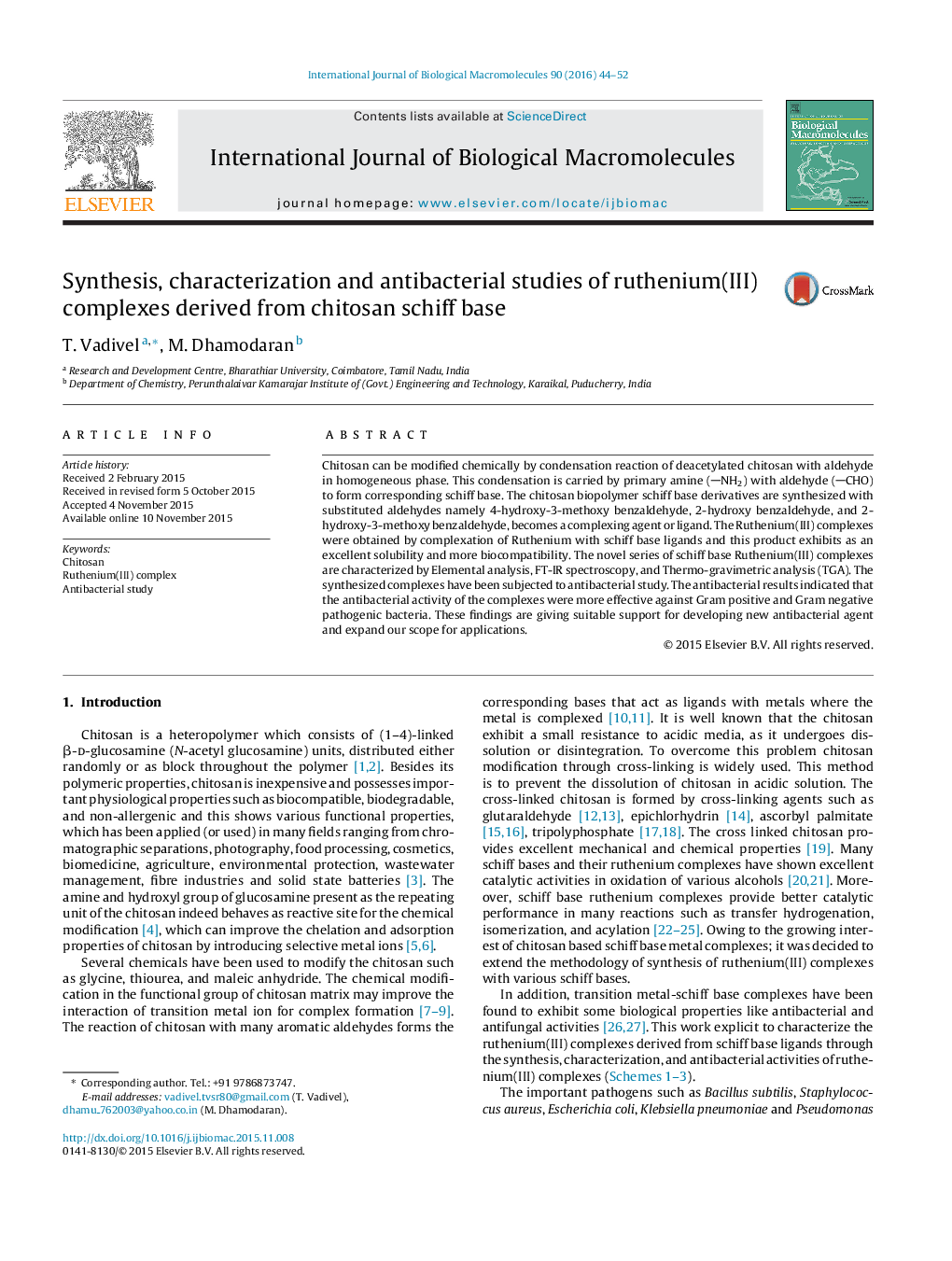| Article ID | Journal | Published Year | Pages | File Type |
|---|---|---|---|---|
| 1985583 | International Journal of Biological Macromolecules | 2016 | 9 Pages |
Chitosan can be modified chemically by condensation reaction of deacetylated chitosan with aldehyde in homogeneous phase. This condensation is carried by primary amine (NH2) with aldehyde (CHO) to form corresponding schiff base. The chitosan biopolymer schiff base derivatives are synthesized with substituted aldehydes namely 4-hydroxy-3-methoxy benzaldehyde, 2-hydroxy benzaldehyde, and 2-hydroxy-3-methoxy benzaldehyde, becomes a complexing agent or ligand. The Ruthenium(III) complexes were obtained by complexation of Ruthenium with schiff base ligands and this product exhibits as an excellent solubility and more biocompatibility. The novel series of schiff base Ruthenium(III) complexes are characterized by Elemental analysis, FT-IR spectroscopy, and Thermo-gravimetric analysis (TGA). The synthesized complexes have been subjected to antibacterial study. The antibacterial results indicated that the antibacterial activity of the complexes were more effective against Gram positive and Gram negative pathogenic bacteria. These findings are giving suitable support for developing new antibacterial agent and expand our scope for applications.
